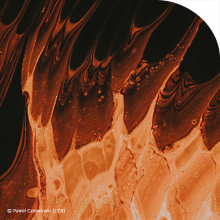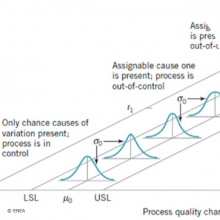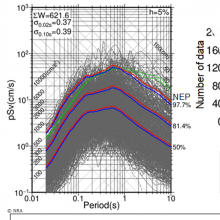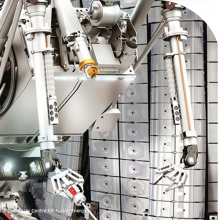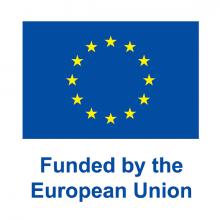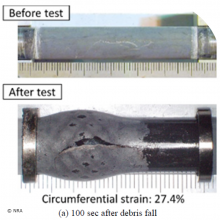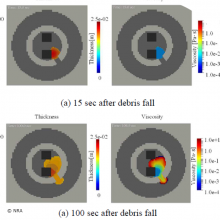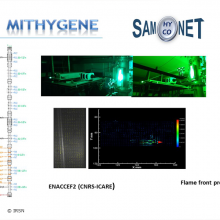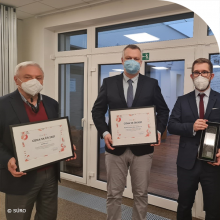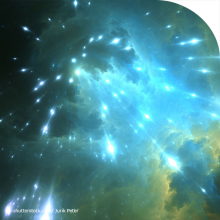News from ETSON and its members*
Scientists of Lithuanian Energy Institute have been developing an open-source turbulent combustion solver flameFoam, based on OpenFOAM toolkit. Code to code analysis and comparisons with experiments showed that flameFoam mostly corresponds to the state-of-the-art currently achieved in the field.
Application of statistical non-parametric methods to radioxenon distributions in atmosphere in order to study the atmospheric background fluctuations and the influence of anthropogenic activities.
NRA Secretariat experts developed an empirical method for estimating source vicinity ground-motion levels on hard bedrock and annual exceedance probabilities for inland crustal earthquakes with sources difficult to identify in advance.
For the examination of plasma and impurity transport in the DT experimental campaign, energy balance, dependency on discharge, and the time evolution of radiation loss profiles are provided by LEI scientists. Indeed, the record braking pulse is also being analyzed here at LEI.
Safety Analyses of SMR with Passive Mitigation strategies - Severe Accident (SASPAM-SA) project proposal has been submitted and has been founded in HORIZON-EURATOM-2021-NRT-01-01, “Safety of operating nuclear power plants and research reactors”. The project is coordinated by ENEA (Italy) and its key objective is to investigate the applicability and transfer of the operating large-LWR reactor knowledge and know-how to the near-term deployment of iPWR, in the view of severe accident and emergency planning zone European licensing analyses needs.
NRA conducted tube burst tests and post-test analyses on high-burnup spent nuclear fuel claddings to investigate the condition for the occurrence of macroscopic hydrogen-induced ductile-brittle transition at operational temperatures with quantitative consideration of precipitated Zr hydrides' morphology.
We have developed a debris bed formation prediction method that takes into account accident scenarios and physical properties by providing THERMOS with the analysis results in MELCOR.
The Fukushima events have highlighted the need for improved safety approaches and numerical tools to assess hydrogen risk. In this regard and under the auspices of ETSON, two main projects are underway. The first is to organize benchmarks for hydrogen combustion codes and the second is to develop Technical Safety Assessment Guidelines (TSAG) for hydrogen risk assessment expected to be completed by the end of 2022.
SÚRO v.v.i. together with ÚJV Řež, a.s. and Centrum výzkumu Řež s.r.o. received from the Technology Agency of the Czech Republic (TAČR) the TAČR 2021 Award in the category "GOVERNANCE" for the project "Computational model for thermomechanical behaviour of a fuel rod with the inclusion of degradation processes of nuclear fuel coverage" (TRANSURANUS Project).
GRS experts develop computational code that can be used to simulate muon radiographic images in order to test the suitability of the method for examining storage casks for spent fuel assemblies.
Pagination
Stay informed - subscribe to our newsletter.
Copyright · All rights reserved








